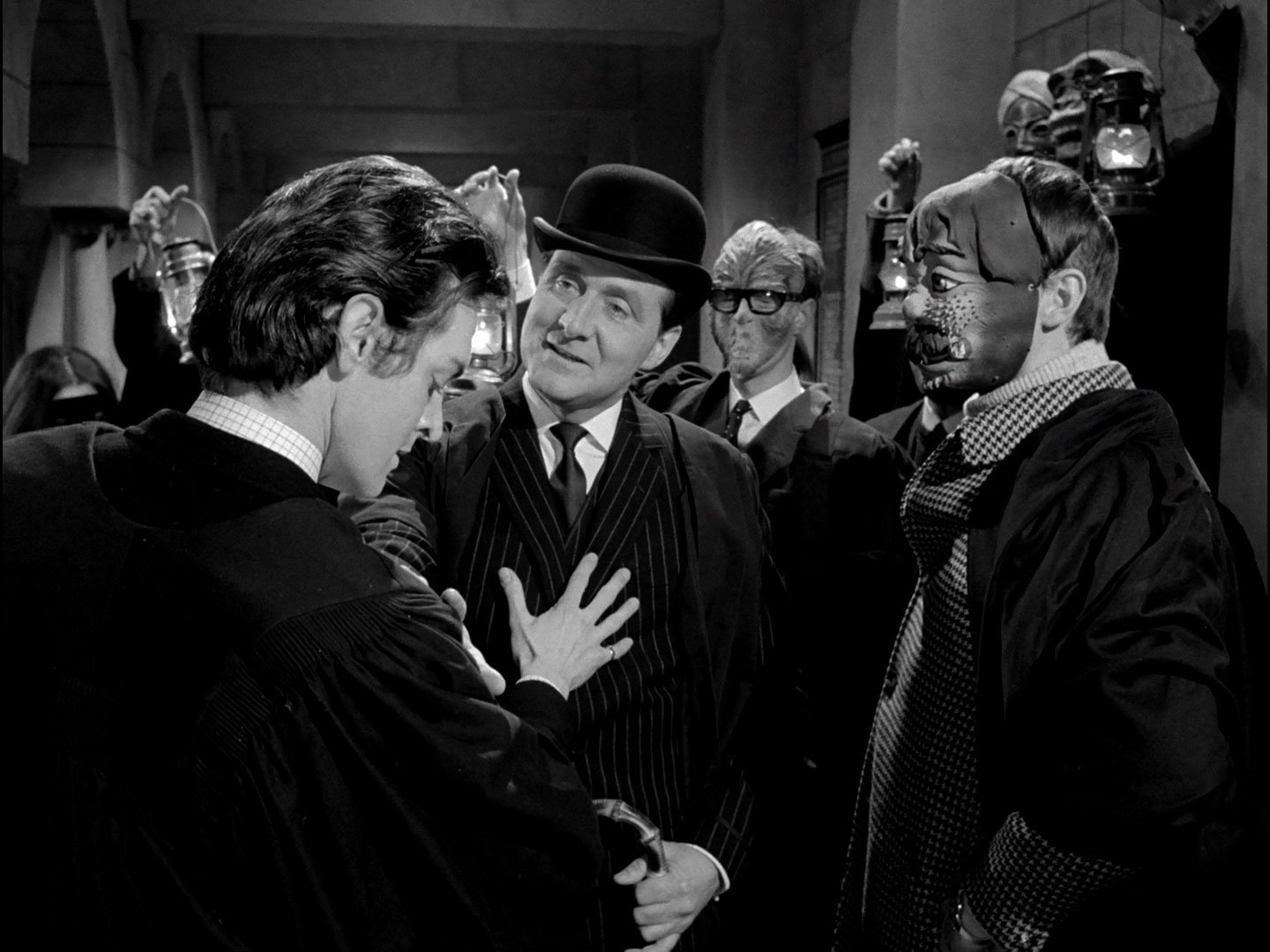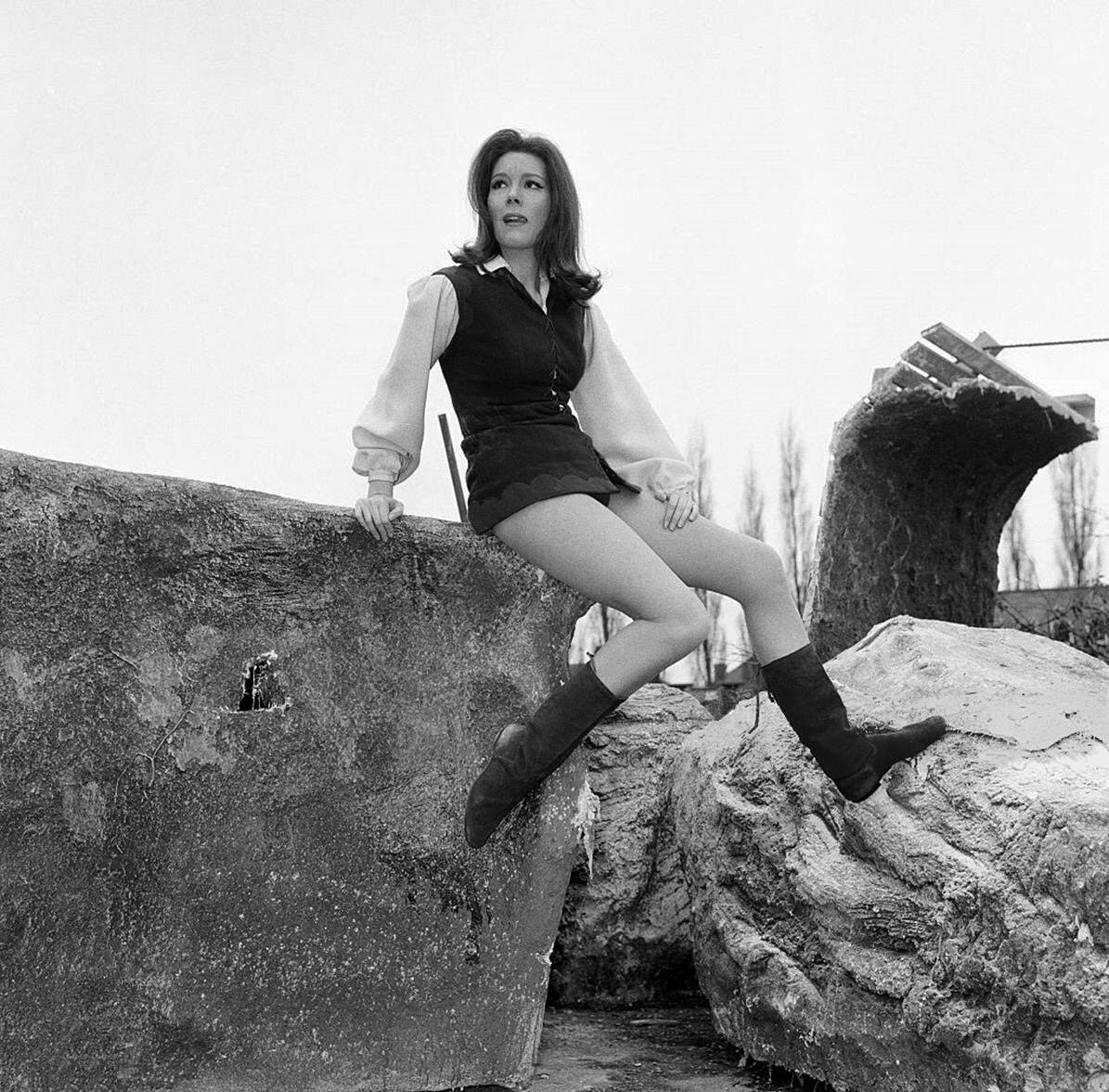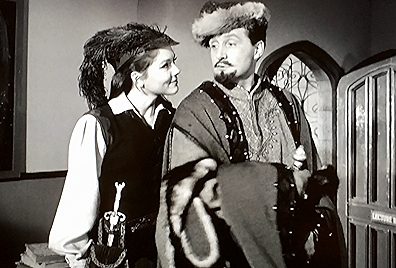Fifty years before a referendum determined that the UK wanted to leave the EU, the subject was tackled in this Avengers episode called A Sense of History. But Martin Woodhouse’s screenplay doesn’t call on Winston Churchill or the Second World War to help invoke British exceptionalism. He goes further back… to Robin Hood and Merry England.
Things kick off when an academic heading for a conference about Europia (a Utopian vision of a future Europe) is killed en route, by an arrow in his back, launched, possibly, from the bow of a student from the local St Bode’s college (the actors are mouthing “Bede” but in the post-dub it comes out as “Bode” – doubtless a lawyerly adjustment).
In go Steed and Peel, she as some kind of undercover student, he as an academic, to see what’s going on. It isn’t long before they encounter Duboys (Patrick Mower), a Flashman-esque in-yer-face right-wing zealot with considerable clout at the college and enough front to call one of his lecturers an idiot to his face.
Out in the woods, Richard Carlyon (Nigel Stock), the right hand man of the dead academic awaits developments, while inside the college John Barron (when he still had hair) as Henge (Stone Henge to the students, on account of how boring he is) represents the fogey-ish end of the academic spectrum, John Ringham’s Professor Acheson – a man in constant motion much given to comedy isometrics – the more progressive end.
Who’s the baddie – the liberal or the conservative? How does Duboys fit in to it all? All is eventually revealed but before we arrive at the destination there is much to keep the interest sparking. Both Steed and Peel have to face down groups of students, whose unruliness and unwillingness to kowtow to authority foreshadows the events of 1968 – he does it simply by facing them down, in the way that men who have seen and done things in wartime often can. She does it by being disarming, as she needs to be when Duboys makes a move on her.
Mower, at about 28, is far too old to be playing a student, but then there was nothing odd about old-for-young back in the 1960s, still goes on today. But Mower’s big lion’s head, brutal looks and charisma mean he is well cast otherwise. Look out among the students for Jacqueline Pearce, later a member of the cast of the very 1970s, very cultish Blake’s Seven, but here in Juliette Greco-style eye make-up applied with trowel. (Digressive but bizarre fact: both of Pearce’s ex husbands went on to marry the actor Felicity Kendal.)
Less incidental but perhaps not exactly essential to know is what writer Woodhouse is doing with the names of his characters, so many of which have Robin Hood connections – Duboys refers to Robin Du Bois (literally “Robin of the Wood” as he was often known), John Pettit (Little John), Millerson (Much the Miller’s son), Allen (Alan a Dale) and of course Jacqueline Pearce as Marianne (Maid Marian). While out in the woods is Richard Carlyon (Richard Coeur de Lion aka the Lionheart), as offstage here as he was in the original tales. Thanks to dissolute.com.au for that observation, which had sailed over my head.
Is it any good though? The wrong-headedness about students of the time and their political leanings as regards Europe (violently against) is fascinating, as is the denouement concerning a shadowy elite engineering political change for its own ends. And the Robin Hood stuff adds another, debatably necessary, layer. But there are too many characters in it, too much plot, and Diana Rigg dressed as Robin Hood in the fancy dress finale, while striking, isn’t enough to compensate, though she does come close.
The Avengers – Watch it/buy it at Amazon
I am an Amazon affiliate. Clicking on the link earns me a (vanishingly small) commission
© Steve Morrissey 2020


